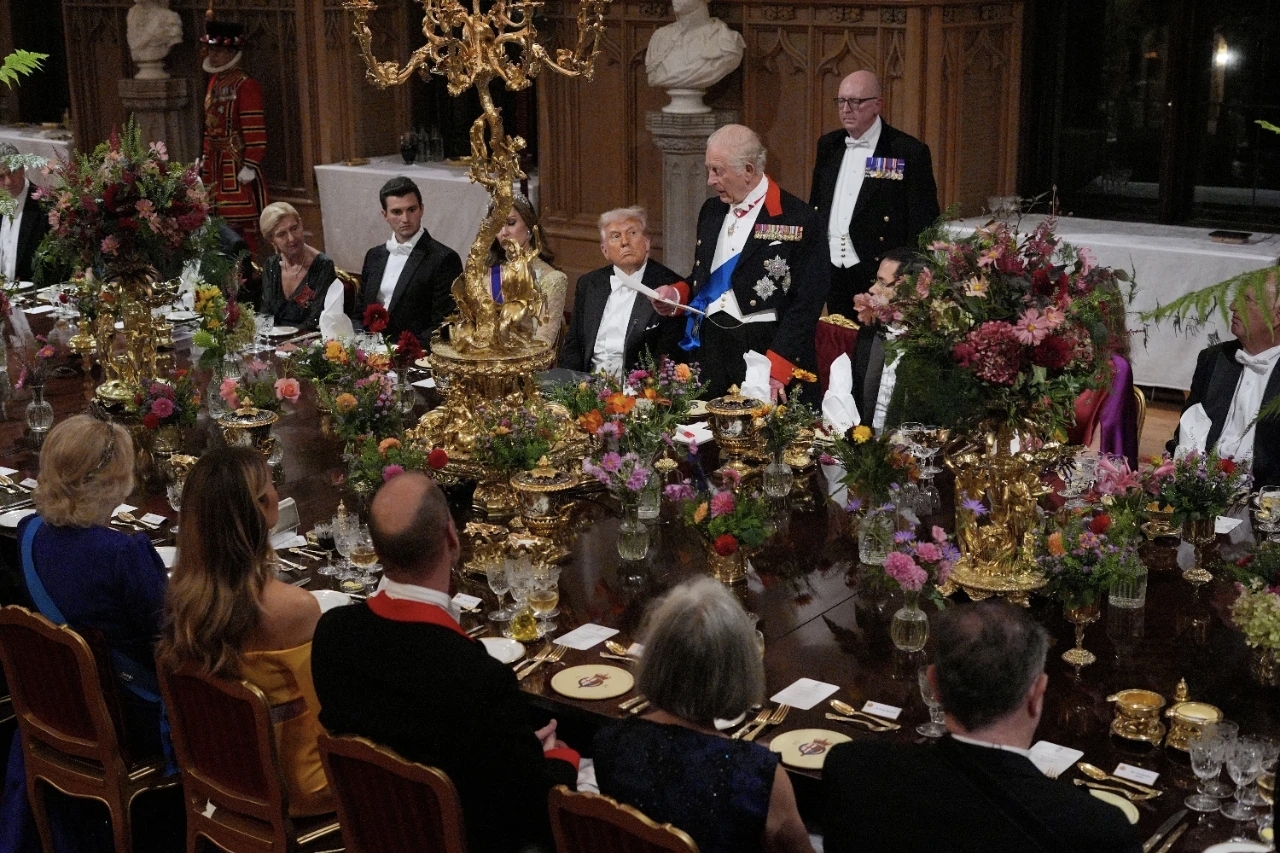
On the evening of September 16th local time, US President Trump arrived in the UK, kicking off his second state visit to the country during his tenure. The high-level and grand arrangements of this visit are extremely rare in the diplomatic history of both the US and the UK. The British side warmly welcomed the event with a grand ceremony led by the royal family, but behind it lies the complex and intertwined interests and practical differences between the two countries in multiple fields such as politics, economy and diplomacy.
Judging from the reception standards, the UK has spared no effort. On the 17th, King Charles III and Prince William of the United Kingdom held a grand welcoming ceremony at Windsor Castle. The ceremony included a carriage parade, cavalry guards, salutes, honor guards, military music performances, air shows, and a luxurious state banquet, all of which demonstrated the prowess of "royal diplomacy". This high-profile reception, on the one hand, stems from Trump's special feelings towards the UK and the royal family. Since childhood, he has been influenced by his mother to pay attention to the British royal family. On the other hand, it is also a strategic choice of the British government, attempting to leverage the soft power of the royal family to achieve its own diplomatic and economic goals.
Trump's visit to the UK this time has multiple political considerations. One of the important goals is to consolidate the "special relationship" between the United States and the United Kingdom. The Trump administration hopes to demonstrate the United States' leading position in transatlantic relations through this, while the new British government also needs to enhance its diplomatic visibility through close interaction. In terms of economic and trade cooperation, promoting the implementation of a series of cooperation agreements is the key. The United States and the United Kingdom signed the "Technology Prosperity Agreement", with American high-tech companies such as NVIDIA, Google and Microsoft committing to invest in enhancing the UK's artificial intelligence infrastructure and cutting-edge technologies. Us financial institutions and energy enterprises also plan to invest in building data centers, expanding banking business and new energy projects in the UK. However, behind these investments, there is also a game of strategy. The US technology industry hopes that the UK will lower the digital services tax and modify the unfavorable regulatory provisions for it. Meanwhile, the US and the UK will continue to bargain on the issue of tariffs. British exporters still face many restrictions in the US. The UK side hopes to use this visit to strive for more concessions.
But behind this seemingly friendly diplomatic interaction, there are many differences between the United States and the United Kingdom. In terms of international politics, the Ukraine issue and the Gaza conflict have exposed the differences in positions between the two sides. The UK is one of the most steadfast supporters of Kyiv and also a sharp critic of Russia. Trump, on the other hand, has repeatedly hinted at his hope to reduce the role of the United States in the Ukraine issue. In the Gaza conflict, the UK is expected to recognize the State of Palestine around the opening of the UN General Assembly in September. However, the US fully supports Israel and threatens to take diplomatic measures against countries that take "anti-Israel actions" at the UN General Assembly.
From the perspective of public opinion, Trump's visit to the UK this time was met with a cold reception. Polls show that Trump's approval rating in the UK is only 16%, and only about 36% of the British people still believe that there is a special relationship between the UK and the US. Many British people believe that the so-called "special relationship" between the United States and the United Kingdom is more of a historical legacy. At the practical level, the differences between the two countries in terms of strategy, security and interests are increasing. During his visit to the UK, nearly a hundred British people gathered and demonstrated outside Windsor Castle to protest his visit. They held up signs with slogans such as "Hatred does not make any country great" and shouted slogans like "Leave the UK" and "The UK does not welcome you". London Mayor Sadiq Khan also wrote an article criticizing Trump, claiming that he has contributed to divisive far-right politics.
Despite the grand diplomatic atmosphere and the signing of a series of agreements during Trump's visit to the UK this time, it could not hide the differences between the two countries on many key issues. The "special relationship" between the United States and the United Kingdom is facing a re-examination and adjustment in the context of the new era. In the future, the direction of the relationship between the two sides will not only depend on high-level diplomatic interactions, but also be profoundly influenced by domestic public opinion, changes in the international situation and the demands of their respective national interests.

The South Korean political arena has once again been embroiled in a public controversy over a judicial investigation that has shaken the entire nation.
The South Korean political arena has once again been embroi…
On the morning of December 29th local time, the precious me…
According to the US media Barchart, recently, the fluctuati…
On December 29th, Mar-a-Lago in Florida, USA, witnessed a h…
SoftBank Group announced on Monday that it has agreed to ac…
Recently, the US State Department issued a visa ban, adding…